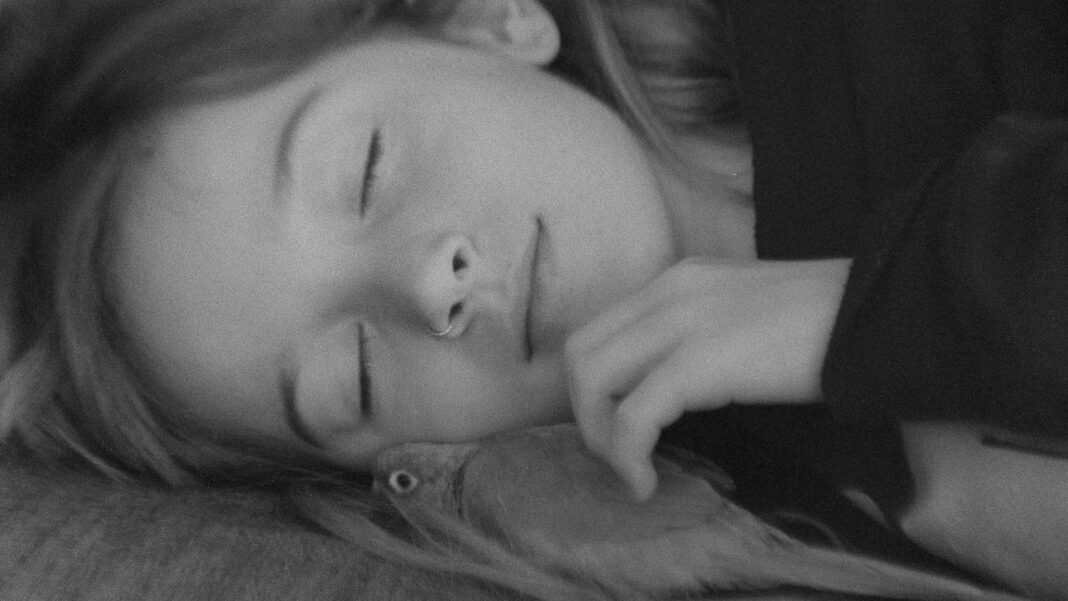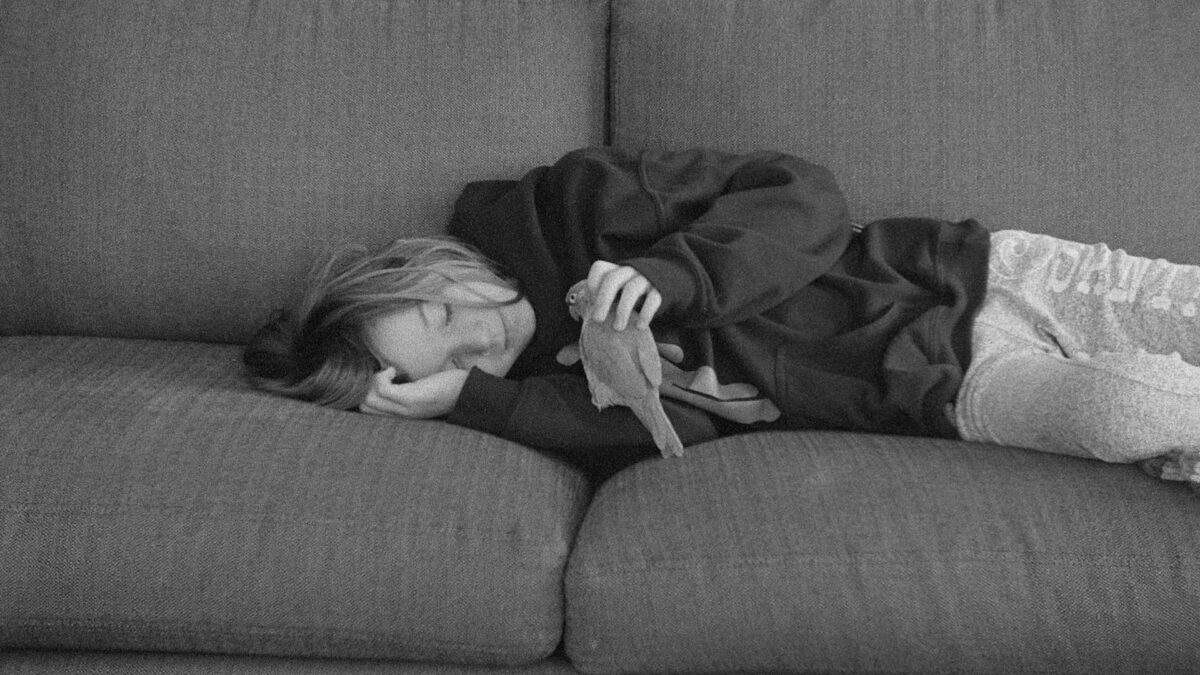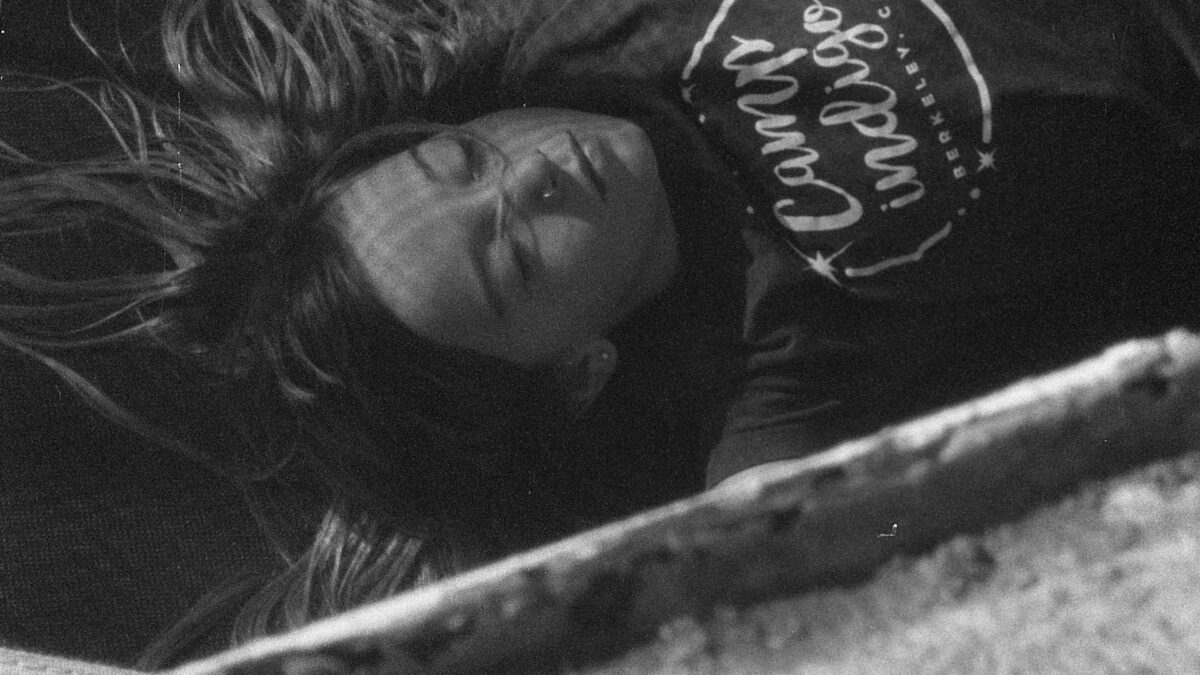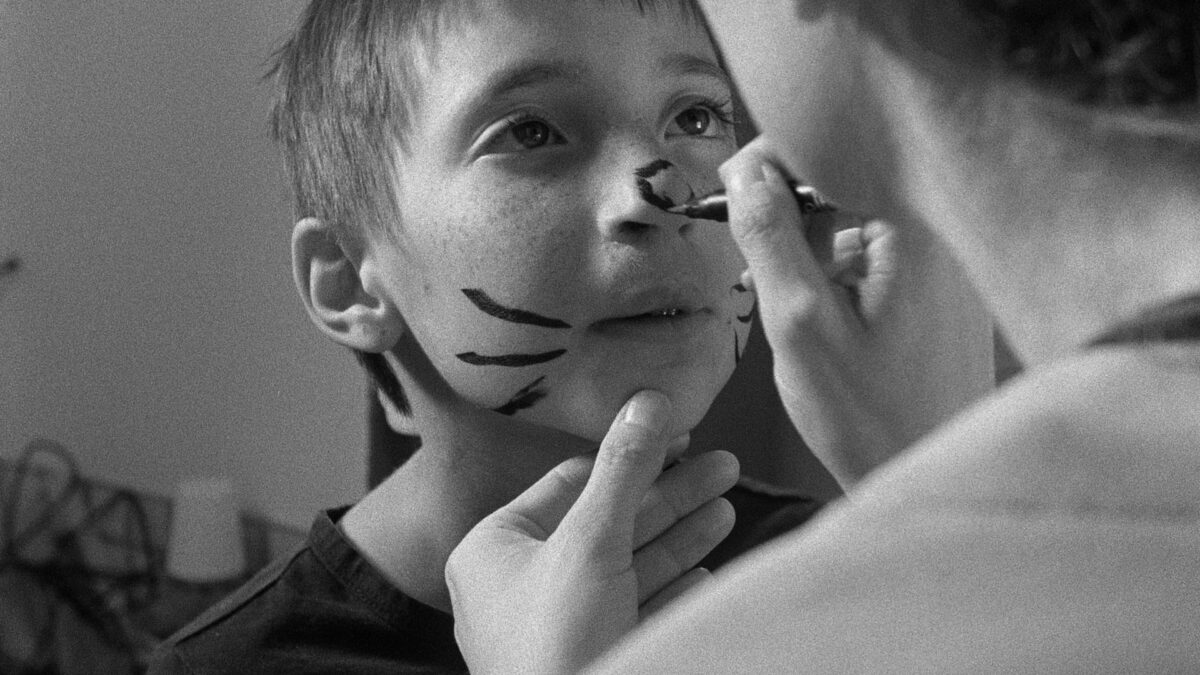Aurora Brachman focuses on the sensitivity of a child coming out as transgender to their mother in the new short film JOYCHILD.
Film And TV Now spoke with the film-maker about the short.
FILM AND TV NOW: We are entering a phase where the world is questioning the virtue of identity and gender in a context of increased wokeness. How important is it for children who are affected by the issues in this film to embrace their identity within the family unit?
AURORA BRACHMAN: With Joychild, I wanted to show what unconditional love can look like between a mother and her gender-expansive child. I am not a child psychologist, but I believe it’s extremely important for children to feel safe and supported by their families in order for them to be comfortable exploring their identities.
For gender-expansive children, this is certainly the case. Although being gender-expansive is nothing new, trans people have always existed, trans people are being talked about more in recent years. With this increased awareness has come greater understanding of trans issues, and also an onslaught of laws legislating trans bodies.
Tragically, these laws have been aimed particularly at children and seek to control their access to gender-affirming healthcare, their participation in school sports, and their right to access the bathroom that aligns with their gender identity. Given this context, I believe it’s essential that gender-expansive children feel love and acceptance within their homes.
FTVN: You shot in black and white. Was this a deliberate creative choice to emphasise the content of the short?
AB: Yes, the film was shot on 16mm black and white film on a Bolex camera. The intention of this medium was to emphasize the timelessness of this story.
Trans kids have always existed, and will continue to exist, and I wanted to evoke that feeling with the film. I also wanted the film to have a quality that felt like memory and nostalgia, and I think the grain and imperfection of film does that so well.
FTVN: Tell us about the people featured in the short.
AB: All the children in the film are gender-expansive kids from Berkeley, California. I got to know the kids and their parents through a play group for gender-expansive kids and parents called “Rainbow families”.
The child who we hear from in the film, Lou, was eight years old at the time we shot the film and Lou was the most emotionally intelligent child I’d ever met. Lou and Lou’s mother are incredibly brilliant, gentle, empathic people and it was such an honour to be allowed into their lives in such an intimate way.
FTVN: Tell us about your production team.
AB: I made the film in the first semester of my MFA in documentary film at Stanford University and the entire film was directed, shot, and edited by me. Another member of my cohort, Sydney Linden, assisted me on the film and did some of the sound recording. We were a small but mighty team!
FTVN: Where did you shoot and for how long?
AB: The film was shot in Berkeley, California in the children’s homes and also at one of their school playgrounds. The film was shot over the course of one week. The conversation in the film was recorded a few weeks after we completed shooting.
FTVN: What did you shoot the film on camera-wise?
AB: The film was shot on a three turret Bolex film camera with 16mm Black and White film.
FTVN: How did you raise finance for the short?
AB: The budget for the film was fairly small, the biggest expense came from the film itself which is pretty pricey. I paid for the costs to make the film myself.
FTVN: Would you be interested in expanding the short into a feature version?
AB: I’m not sure I would make a feature out of this particular film, but generally as a film-maker I’m very interested in telling queer stories so I would absolutely be interested in making more films about gender-expansive kids!
FTVN: Do you see this short as a cathartic and educational tool for schools and colleges of all kinds and are there plans to showcase it in these facilities?
AB: I absolutely feel the film could be used for educational purposes. As of now, it has screened at a few events for young people. Unfortunately, because the film is still in its festival run, it is not yet publicly available for more audiences to see it.
But it will be premiering online in June as a part of The New Yorker Documentary series which is very exciting! Once it’s publicly available online, I’m looking forward to it being able to reach a wider audience.
FTVN: Tell us about the MFA Program in Documentary Film in Stanford University. What are the key things you have learned from it and how does the University help film-makers evolve both during and after graduation?
AB: The MFA program in Documentary film is an intensive masters that focuses on both the production and theoretical aspects of documentary film. It’s essentially a two-year boot camp in documentary film where you’re guided through making four films, three in your first year and one longer work in your senior year.
It’s been an incredibly transformative experience for me. This program is where I’ve learned to hone and trust my voice as a film-maker. I have an incredible cohort of eight other brilliant film-makers that I learn from every day.
Above all it has taught me to listen to my own instincts and that my voice and my distinct view of the world are important and valuable.
FTVN: You are very focused on bring stories about minorities into the mix. Do you have any dream projects you would like to see realised?
AB: As a Queer Black woman, I make work from my distinct point of view. We all bring our own perspective and lived experiences into our work, and I am no different. Because of this, many of my films grapple with themes that intersect with queerness and the experiences of people of colour.
In the beginning of the pandemic, I made a short documentary called Club Quarantine, about a virtual queer dance party that had emerged in response to the pandemic. That film was released by the New York Times Op-Docs and I’m currently working on a docuseries that expands upon that story as queer night life begins to re-emerge all over the world after the pandemic.
FTVN: With the ongoing global situation, how has it affected your development and evolution as a film-maker?
AB: The pandemic has been extremely challenging for me as an artist. Stanford closed down and I moved back home to attend grad school virtually. The hardest part has been losing my sense of community, particularly creative community.
Although it’s been very challenging, it has also encouraged me to approach my film-making practice in new ways and I’m incredibly grateful for the lessons that has taught me.
FTVN: Tell us about the composer Elijah Lee.
AB: Elijah Lee is a musician from New Zealand. I came across his work on Sound Cloud and immediately fell in love with it. He so graciously allowed me to include his song in my film.
FTVN: Diversity and gender are big issues in the creative arts at the moment. Where do you feel progress has been made and where are there still things to be focused on?
AB: I think there is still quite a bit of work to be done. From my own experience, I often find myself to be the only Black woman in most of the documentary spaces I enter. That has been extremely disappointing and isolating as an artist.
I’m heartened to see that the role of women, non-binary people, and people of colour is being spoken of more in the documentary world, but I think we have more room to grow.
One recent example was at the Oscars where Garrett Bradley’s brilliant documentary feature, Time, lost to the film My Octopus Teacher. I truly believe Time is one of the greatest works of non-fiction of all time, and it was made by a Back woman and about a Black woman.
Seeing Time lose to a film about an octopus was very telling. To me it signals that we still cannot agree about the value of a Black life, but we can all agree on an octopus. I think we can do better than that.
FTVN: What issues and themes would you like to explore in future work?
AB: I will continue to make work about intimate relationships within families and communities. And I know I will also be making work that explores the lives of Black and brown people and Queer people.
I’m currently finishing up my thesis film which is a personal film about my relationship with my mother. I’m not sure where I will go next, but I know I will continue to make work that is patient, intimate, and explores our lives with dignity.
FTVN: Finally, what are you most proud of about this short?
AB: I am so proud that this small but mighty film has been touching so many hearts and minds. It is critical that we listen to trans people. This film is my contribution to that.
I am also incredibly proud of the brilliant children and parents in the film who spoke their truth so fearlessly and allowed me to share their stories with the world.
































